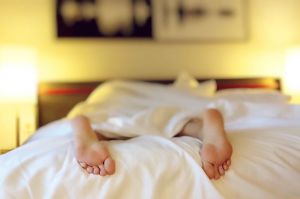 It might come as no surprise to know that it’s official, the coronavirus lockdown in the UK triggered a large increase in anxiety-related sleep problems. The research, conducted by a team lead by Professor Jane Falkingham, of the Center for Population Change at the University of Southampton, funded by the Economic and Social Research Council, found that in the initial weeks of lockdown sleeplessness caused by stress, anxiety and worry affected nearly 25% of the population.
It might come as no surprise to know that it’s official, the coronavirus lockdown in the UK triggered a large increase in anxiety-related sleep problems. The research, conducted by a team lead by Professor Jane Falkingham, of the Center for Population Change at the University of Southampton, funded by the Economic and Social Research Council, found that in the initial weeks of lockdown sleeplessness caused by stress, anxiety and worry affected nearly 25% of the population.
The worries that were detailed as causing this increase in sleeplessness were varied – loneliness, job security, fear of catching covid, financial problems, and the pressures of juggling working from home and schooling children were all significant contributing factors. Prior to the pandemic, insomnia was already one of Britain’s biggest health problems, affecting millions of people.
Routines which previously supported a healthy sleep/wake cycle were also thrown into disruption. The people most vulnerable to the unfolding crisis were also the one’s hit the hardest, with key workers and BAME people reporting more significantly interrupted sleep than their counterparts. Unfortunately, interrupted sleep leads to heightened feelings of anxiety and worry. This creates a circular feedback loops which can cement the sleeping troubles, long after the stressful incident is resolved.
If you were to ask a doctor for recommendations on resolving insomnia caused by stress and anxiety, they’d recommend a range of interventions including hypnotherapy. “Hypnotherapy and hypnosis can help us overcome patterns of sleep disturbance” says the National Council for Hypnotherapy (NCH). Sessions with a qualified hypnotherapist will include learning self-management techniques to improve the length and quality of your sleep, as well as stress management and anxiety reduction tools. By uncovering and addressing the areas of stress and tension in your life you remove the causes of the insomnia or trouble sleeping.
If you’ve been struggling to sleep since lockdown began, it’s important to take steps to resolve the issue before it becomes an ingrained habit. Find a hypnotherapist near you by using the NCH’s directory.
